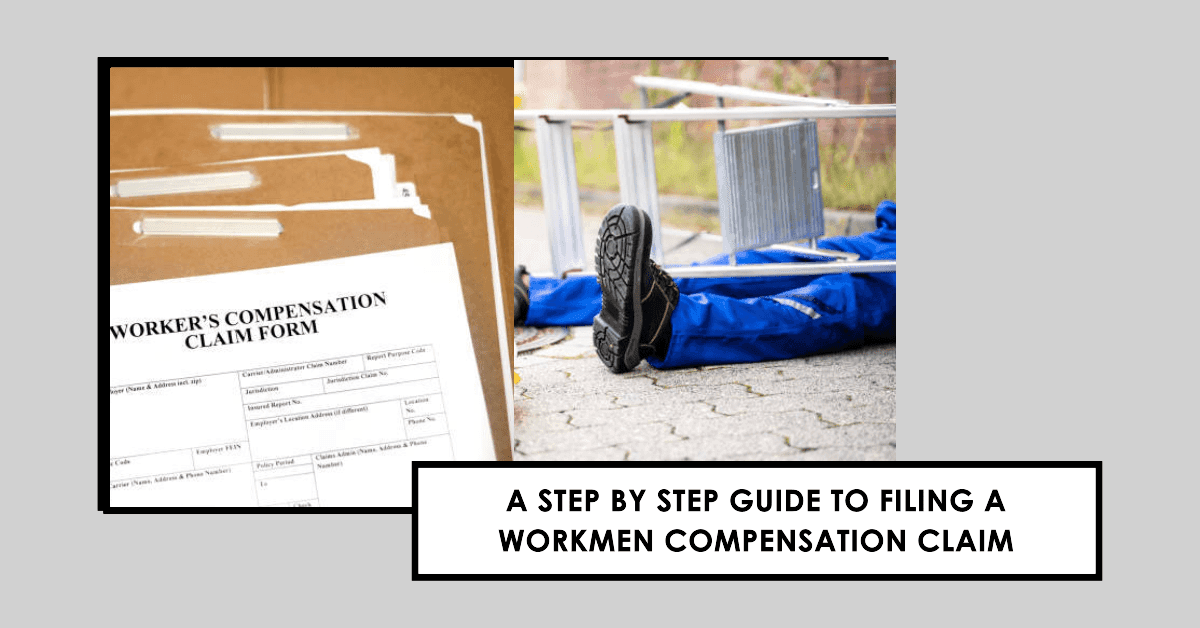Hello there! Whether you’ve just started a new job or have been in the workforce for a while, it’s crucial to understand how workers’ compensation works. Why? Because accidents happen! And when they do, it’s important to know how to protect yourself financially and get the care you need. Today, we will explain how to file a workers’ compensation claim in a simple, step-by-step guide.
What is Workers’ Compensation?
First, what is workers’ compensation? It’s insurance that your employer has to help cover medical costs and lost wages if you get injured or sick because of your job. If you trip and fall at work or develop a condition due to your work environment, workers’ compensation is there to have your back (literally and figuratively).
Step 1: Seek Immediate Medical Attention
If you ever feel sick or injured, don’t ignore it—get help as soon as possible. Don’t waste time wondering what to do if it’s a serious issue. Call an ambulance or go directly to the emergency room. In situations like these, every minute counts, and professional medical assistance is crucial. You might feel you don’t want to bother others or that you’re overreacting, but it’s always better to be safe than sorry.
Trust your gut—if something feels wrong, it probably is, and medical experts are the best people to assess that. So, never hesitate to seek the help you need to improve. Your well-being is too important to take risks, and you should always prioritise your health.
Step 2: Inform Your Supervisor or Employer
Once you’re safe and have received initial medical care, it’s time to let your employer know what happened. The quicker you report it, the smoother the process will be. Some states have reporting deadlines, so check your local laws. Your employer should give you an official claim form when you report the injury. Fill this out as accurately as you can.
Step 3: Document Everything
Taking precautionary steps immediately after an injury can make a difference when filing a claim. Think of it as a “CYA” or “Cover Your Assets” strategy.
First, take detailed photos of the location where the incident occurred. The goal is to capture the environment as it was at the time of the injury, as this can provide crucial context.
Next, write down everything you can remember about the incident, focusing on the how, where, and when. Please don’t rely on memory alone. Our recollection can sometimes fade or change over time. Keep a log of all your medical treatment, from hospital visits to prescription medications.
Lastly, if there were witnesses, it’s essential to collect their names and contact information. This additional testimony can lend credibility to your case. All this documentation will be invaluable when you need to prove your claim.
Step 4: Submit The Claim Form
After completing your claim form, hand it back to your employer. They’ll complete their part of the form and forward it to their insurance company. Keep a copy of the completed form for your records.
Step 5: Follow Through With Medical Treatment
Depending on your employer’s insurance plan, you may need to visit a specific healthcare provider. Continue your medical treatment and follow your doctor’s advice. Please do so to ensure your claim.
Step 6: Await the Decision
Once you’ve submitted your insurance claim, the company will look at it. They’ll decide whether to give it the green light or not if it’s approved. Great! You’ll start receiving help with your medical bills and may even receive a portion of your regular pay. But if the company says ‘no’, don’t worry—you can do more. Just read on for the next step.
Step 7: Appeal If Necessary
If your claim is denied, you have the right to appeal. Each state has a different appeals process, but it typically involves submitting additional documentation and possibly a hearing. Don’t be discouraged; many claims are initially denied but later approved during the appeal process.
Step 8: Stay Informed and Engaged
Keep in touch with your employer and the insurance company throughout the claim process. If you have questions, don’t hesitate to ask. Remember, it’s your right to claim workers’ compensation if you’ve been injured on the job.
Frequently Asked Questions
Is workers’ compensation mandatory?
In most states, employers are legally mandated to have workers’ compensation insurance. There are some exceptions, but they’re pretty rare.
Do part-time workers get workers’ compensation?
Yes, part-time workers are generally covered by workers’ compensation, just like full-time employees.
Can I get fired for filing a workers’ compensation claim?
It’s generally illegal for an employer to fire you because you filed a workers’ compensation claim. If you feel you’ve been wrongfully terminated, consult an attorney.
Additional Tips and Pointers
Before I let you go, I’d like to share some extra tips that can make your experience with filing a workers’ compensation claim smoother and more straightforward:
- Be honest and transparent: Honesty is not just the best policy; it’s the only policy regarding workers’ compensation. Be transparent about your injury and its impact on your ability to work. False information can lead to denying your claim or even legal repercussions.
- Keep a journal: Record daily how your injury affects your everyday life and work. Note any pain levels, activities you can’t perform, and how the injury affects your emotional state. This journal could be valuable evidence if your claim is disputed.
- Communication is key: Keep an open line of communication with your employer and the insurance company. Promptly responding to requests for additional information or clarification can help expedite your claim. It also demonstrates your eagerness to cooperate, which can work in your favour.
- Consult a workers’ compensation attorney if needed: Sometimes, the process can get complicated, especially if your claim is denied or you feel you need the benefits you deserve. An attorney specialising in workers’ compensation can guide you through the complexities and help you understand your rights and options.
- Take your time back to work: Your health is the top priority. Take your time to return to work once you are medically cleared. Doing so can put your health at risk and jeopardise your workers’ compensation claim.
- Know your rights: You have rights throughout this process, including the right to appeal a denial, seek a second medical opinion, and return to your job (or a similar job) once you’re medically able. Familiarise yourself with these rights so you can advocate for yourself effectively.
Final Thoughts
The process of filing a workers’ compensation claim can seem daunting. But remember, the system is designed to help you. Accidents and illnesses can happen to anyone. That’s just life throwing its curveballs at us. What matters is how well-prepared we are to catch them—or, better yet, dodge them!
So, let’s recap: Act fast, report your injury, document everything, submit your claim, and follow your doctor’s advice. Don’t hesitate to seek professional help if you’re facing roadblocks, and above all, prioritise your health and well-being.
Wishing you a speedy recovery and a smooth experience with your workers’ compensation claim. Remember, you’re not alone in this journey. You have a support system, starting with this guide and extending to your employer, healthcare providers, and, if needed, legal professionals. Take care, stay safe, and keep thriving!







